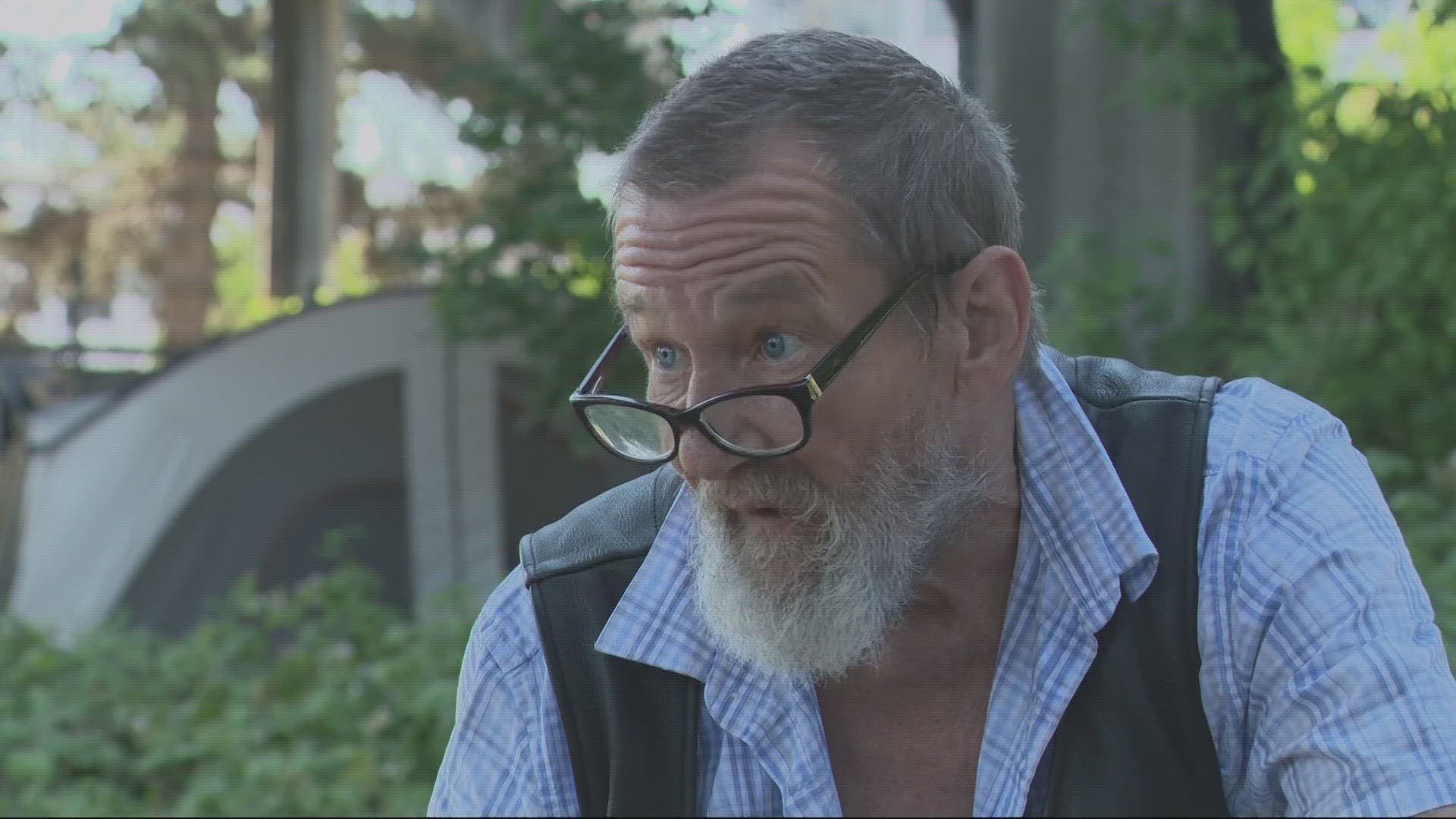PORTLAND, Ore. — Below the Morrison Bridge on Portland’s Central Eastside are small homeless tent villages often reported to the city and targeted for camp removals.
“I’m just trying to survive,” said Russell, 60, who lives in one of the tents there.
“They follow you around and post on you, post on you, post on you, so you're in a constant state of move,” said another homeless man named Dave.
He’s referring to Rapid Response Bio Clean, one of two commercial cleaning companies contracted by the city of Portland to clean and remove homeless camps throughout the city. The other company is City of Roses Disposal and Recycling.
A historic ruling just came down in a 2020 lawsuit filed by a homeless person against Rapid Response. Lynette Snook v. Rapid Response Bio Clean Inc. found the cleaning company liable for wrongly throwing out personal property during a sweep in the St. Johns neighborhood. Rapid Response denies the claim but still owes about $400 in damages.
“However, Rapid Response employees did testify to taking everything they removed that day to the dump,” said one of the attorneys behind the case, Nate Haberman of Underdog Law Office. “It sets an important precedent that under Oregon law, everybody's property is valued.”
According to city data, Portland’s camp removal crews have cleared or removed 4,000 sites in the last 12 months. It's not clear how many of those Rapid Response is responsible for. This lawsuit was filed roughly three years ago, meaning there have been thousands of camp clearings since then. Some argue Rapid Response has been doing this all along. Those living in the camps under the Morrison Bridge share that belief.
“What it takes to live, they take from you,” Russell said. He said he's had his camp cleared at least 14 times in his 12 years on the street.
Following a camp cleanup, Rapid Response crews are required to store people's personal property for 30 days, regardless of its condition, except for things like weapons and drugs. After 30 days, the property is destroyed or donated.
“They say they are putting it in storage but it's never there,” Russell said.
“This last time, I didn't get any of my hygiene stuff back. I didn't get any of my first-aid stuff back,” Dave said of a recent sweep. He’s called 311 twice to report it. “I doubt it's going to do any damn good.”
Portland Mayor Ted Wheeler's office told KGW they're “glad this is resolved and are pleased with the improvements that the Impact Reduction Program has made with its contractors and our property storage and inventory process over the last three years."
KGW reporter Blair Best called Rapid Response on Wednesday. They had no comment and weren't interested in hearing her questions.
“These people who have not had a voice for so long now do have a voice and are able to bring these cases and use the legal system to protect their property,” said Haberman.
The attorneys behind this case are prepared to take on more lawsuits like this and believe this could be just the tip of the iceberg.

